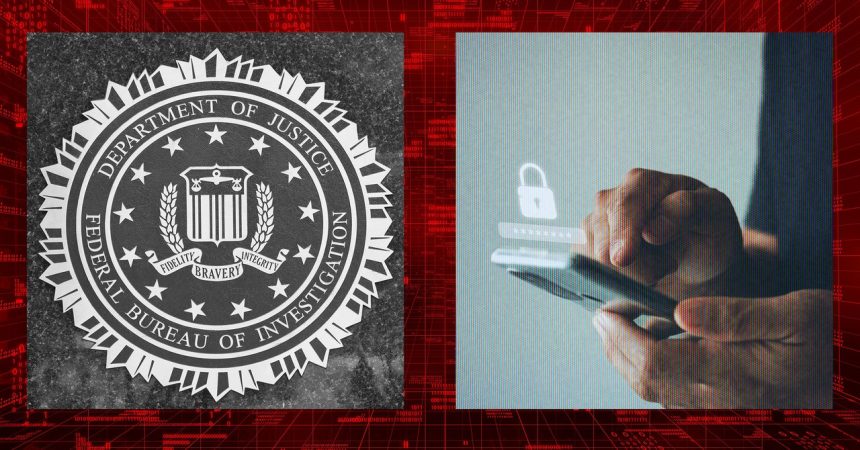Paragraph 1: Global Law Enforcement Dismantles Russian Money Laundering Networks
A coordinated effort by international law enforcement, spearheaded by the UK’s National Crime Agency, has successfully disrupted two major Russian money laundering operations. These networks, operating across over 30 global locations, processed billions of dollars annually. The investigation unveiled sophisticated laundering techniques, including methods to directly exchange cryptocurrency for cash, highlighting the evolving challenges in combating financial crime in the digital age. This operation represents a significant blow to the intricate financial infrastructure supporting illicit activities.
Paragraph 2: US Telecoms Under Siege: Salt Typhoon and the Call for Encryption
As the US government grapples with the fallout of China’s "Salt Typhoon" digital espionage campaign targeting US telecoms infrastructure, two senators have called for a Department of Defense investigation into the government’s failure to adequately secure its own communications and address known vulnerabilities in the telecom sector. This breach, impacting at least eight phone companies, has exposed calls and texts, prompting officials from the Cybersecurity and Infrastructure Security Agency (CISA) and the FBI to recommend the use of encryption apps by US citizens for enhanced privacy protection. This recommendation marks a significant shift in the US government’s stance on encryption, previously advocating for backdoors for law enforcement access – the very vulnerabilities exploited by Salt Typhoon.
Paragraph 3: The Evolving Landscape of Digital Security, Privacy, and Advocacy
Amidst these large-scale security threats, individual tools and advocacy efforts are also gaining traction. Signal Foundation president Meredith Whittaker reiterated Signal’s commitment to providing private, end-to-end encrypted communication services globally. New technologies, such as a smartphone scanner by iVerify, are emerging to detect spyware like Pegasus. Individual programmers, like Micah Lee, are developing tools to empower users to control their data on platforms like X (formerly Twitter). Meanwhile, privacy advocates like Nighat Dad are working to protect vulnerable populations, particularly women facing digital harassment in regions like Pakistan.
Paragraph 4: Turla’s Sophisticated Espionage Tactics and the Complexities of Cyber Attribution
The Russian state-sponsored hacking group Turla, known for its advanced techniques, has once again demonstrated its sophistication by hijacking the infrastructure of other hackers. Microsoft and Lumen Technologies revealed Turla’s infiltration of a Pakistan-based hacker group’s servers, leveraging their access to spy on government, military, and intelligence targets in India and Afghanistan. This tactic of compromising other hackers’ systems provides Turla with greater stealth and plausible deniability. This incident, the fourth such instance since 2017, underscores the complexity of attributing cyberattacks and the interconnected nature of the cyber threat landscape.
Paragraph 5: Crackdown on Cybercrime: Hydra Takedown and the Prosecution of Ransomware Developers
In a series of actions signaling a potential shift in its approach to cybercrime, Russia has handed down significant prison sentences to members of the defunct dark web marketplace Hydra, including a life sentence for its creator. Hydra facilitated over $5 billion in illicit cryptocurrency transactions before being dismantled in a joint US-German law enforcement operation. Furthermore, Russia has arrested and charged a software developer suspected of contributing to multiple ransomware groups, including Conti, LockBit, and Hive. This individual, identified as Mikhail Matveev (Wazawaka), was previously indicted and sanctioned by the US government. These actions, seemingly aimed at demonstrating a stricter stance on cybercrime, could have broader implications for the ransomware ecosystem and the future of cybercrime emanating from Russia.
Paragraph 6: Exxon, DCI Group, and the Alleged Targeting of Climate Activists
An FBI investigation is underway into the role of DCI Group, a lobbying consultancy hired by Exxon, in a hack-and-leak operation targeting climate change activists. Reuters reporting alleges that DCI provided a list of activists to a private investigator who then outsourced the hacking operation. The hacked materials, containing internal communications about climate litigation against Exxon, were reportedly previewed by Exxon before being leaked to the media. This incident raises serious concerns about the use of hacking and surveillance tactics to suppress dissent and intimidate activists. Exxon denies knowledge of any hacking activities, while DCI maintains that all employees and consultants are directed to comply with the law. The outcome of the FBI investigation could have significant implications for the accountability of corporations and lobbying firms engaging in such practices.



